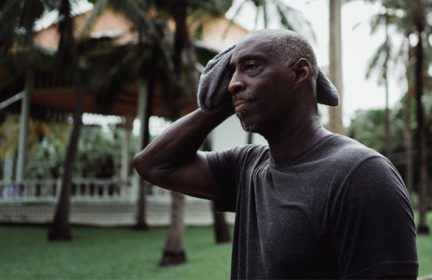AC Apocalypse. Whatcha gonna do?
20+ year old a/c unit, 90-100º forecast for days… need I say what happened over the weekend? I’ve been around for a while, namely since before a/c was common. Boy, how quickly we forget how pampered is our rich-world life.
On a related note, I saw Texas Reliability forecast blackouts down there and urged folks to turn off the AC, riiight.
So just a thread to think about heat related actions if not preps. According to Wiki in most years, more people succumb to excessive heat than any other weather related cause. Obviously GW is causing anomalous heat waves (like in the PNW last year) and especially prolonged heat events are dangerous because warm nights prevent the cooling respite more fragile bodies need.
Just a few random things:
If you are in a dry climate, evaporating water, however you can get that to happen, is the natural solution. Water changing from liquid to vapor absorbs heat, cooling it’s surrounding. But in humid climes you need other plans. We live in Missouri now, dry in the winter and wet—er in the summer. Here a summer breeze is as likely as not to be so saturated that not only is your efforts to evaporate water for cooling inefficient but your own perspiration is much less effective. Be especially cautious when the dew point is high, 65º ot higher because your natural cooling is less effective.
Warmer air holds more water, to a point. The dew point is the temperature at which the air is saturated, below that temperature the moisture in the air condenses—forms dew. Think of a cold drink glass with beads of water on the outside, the glass is colder than the dew point so moisture from the air condenses on it. But on the flip side, with a high dew point the air is already near-saturation and perspiration or a wet kerchief is less effective as cooling because water won’t evaporate into near-saturated air so won’t absorb heat in changing phase.
So, getting out of those weeds, we live in an old house 150 years maybe. Old houses had lots of cooling strategies we can implement in an emergency. Our house s 12′ ceilings and windows that go up almost to 10′. Open down the top sash and open up the bottom at night and automatically a convection current sweeps out the hot air at the top, pulling in cool air at the bottom—even with no breeze. That is if the air cools off at night. The US SE may not be uninhabitable in a warmed future because humidity holds heat, preventing night time cooling.
Houses once employed breezeways to, you know, catch the prevailing breeze. Also they did pay attention ot orientation. Here in SW MO the prevailing wind is from the NW in winter but the summer breeze usually comes from West or SW. So the old houses keep their backs to the NW and their sitting porch to the SW—to catch the summer breeze and shade the summer evening sun that is WNW about now.
Of course you can’t reorient your house in an A/C apocalypse but you can think about those natural angles. Say leaving the drapes closed on the East in the morning and west/north in the afternoon. In the evening, open the windows and go outside as soon as outside is cooler, the SE side will have been in the shade longest at 9P so will be coolest, everything else equal.
Anyway long enough rant for now. I fixed the AC so gotta go enjoy it. What strategies do you have for dealing with AC Apocalypse?
-
Comments (16)
-
